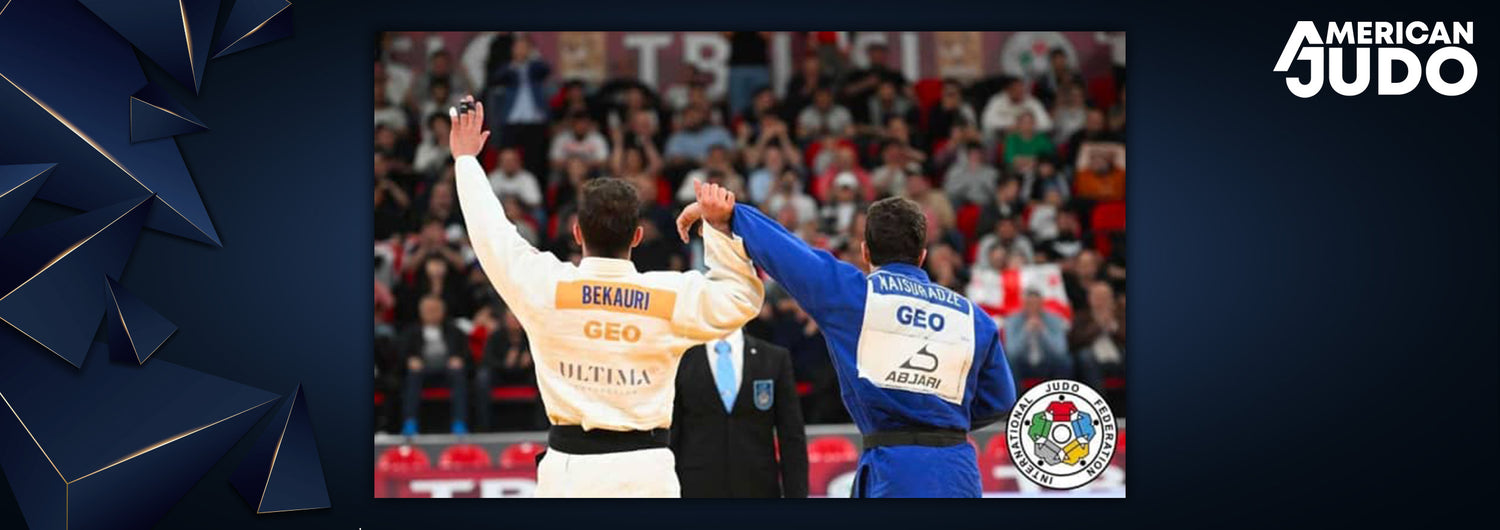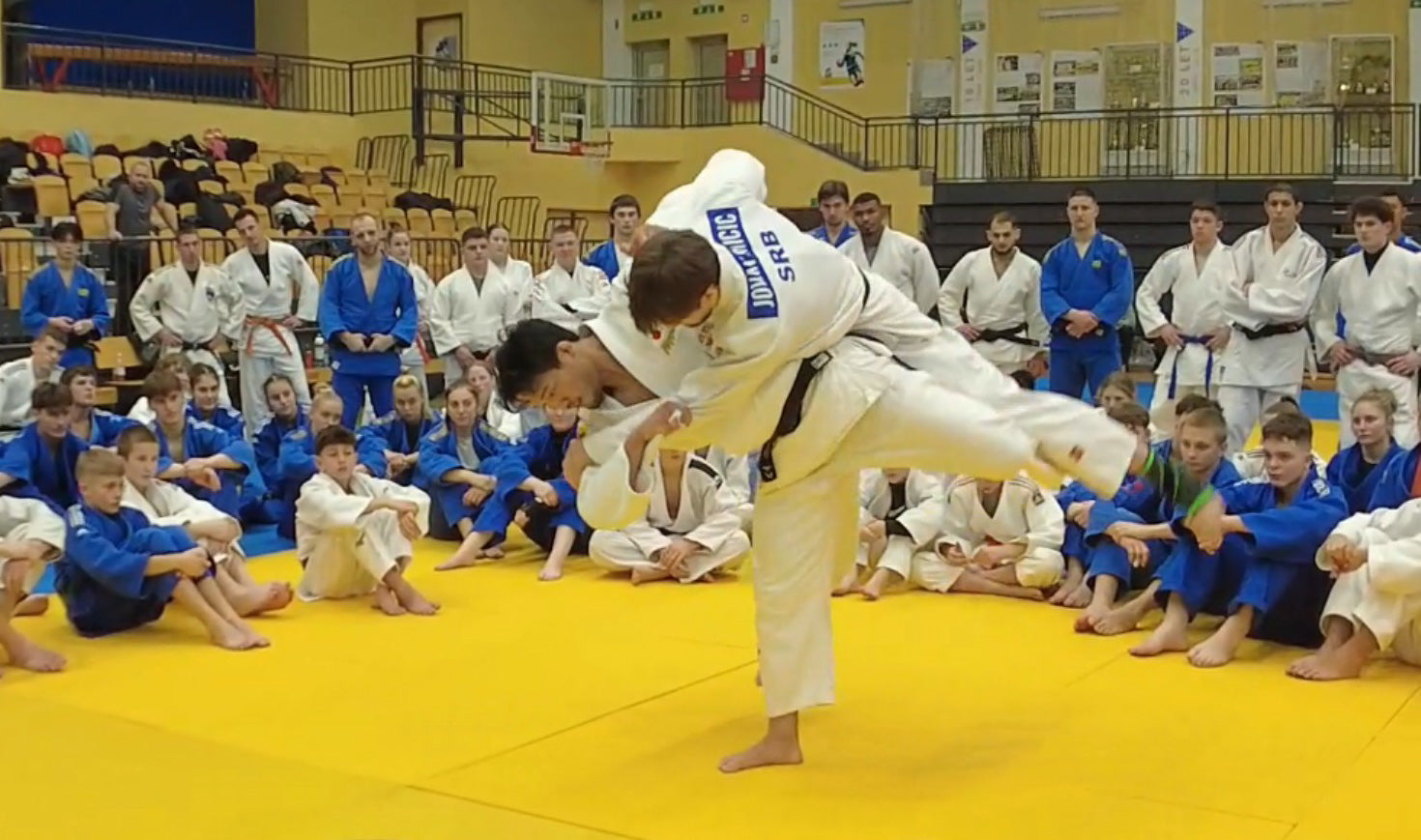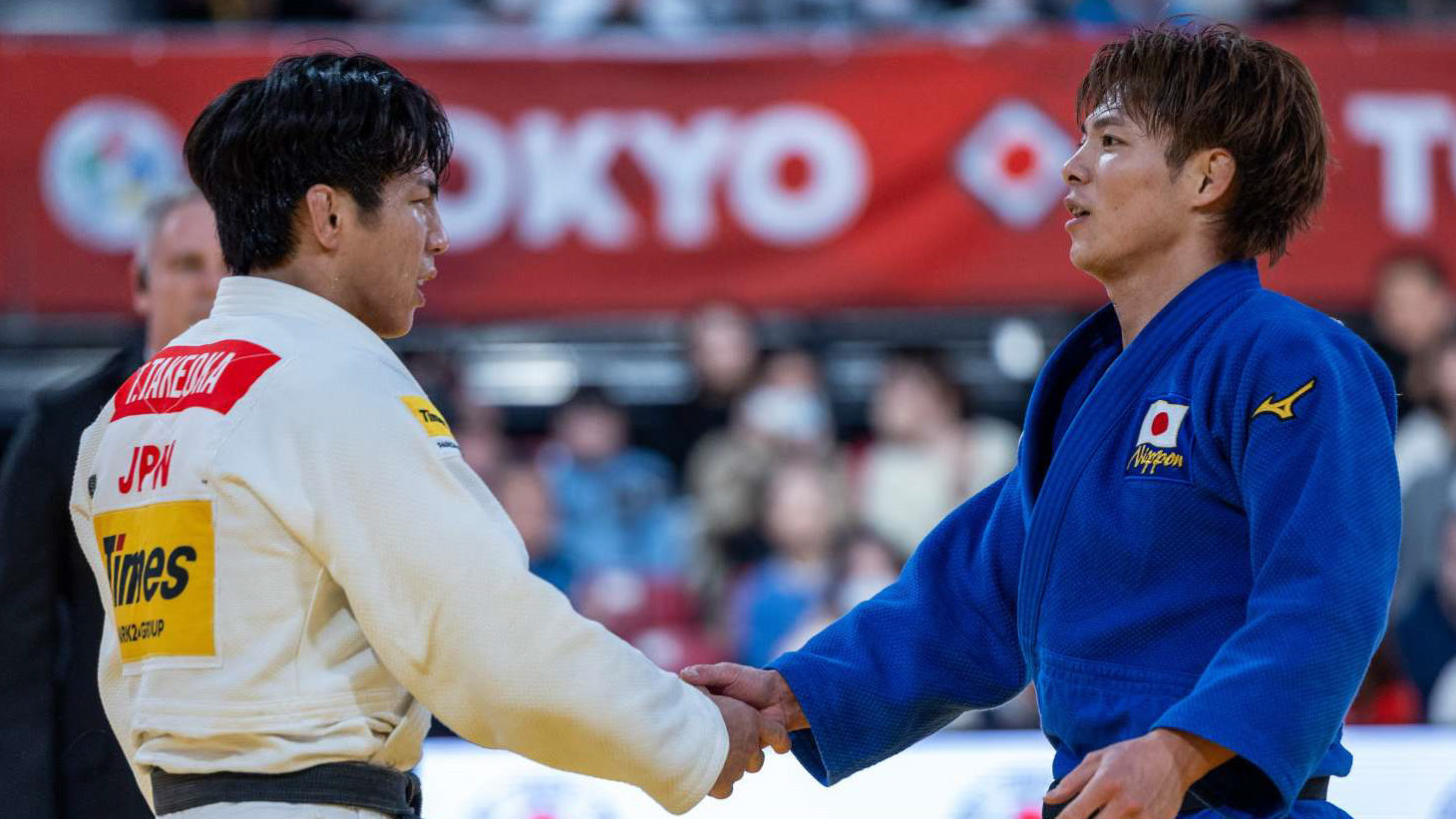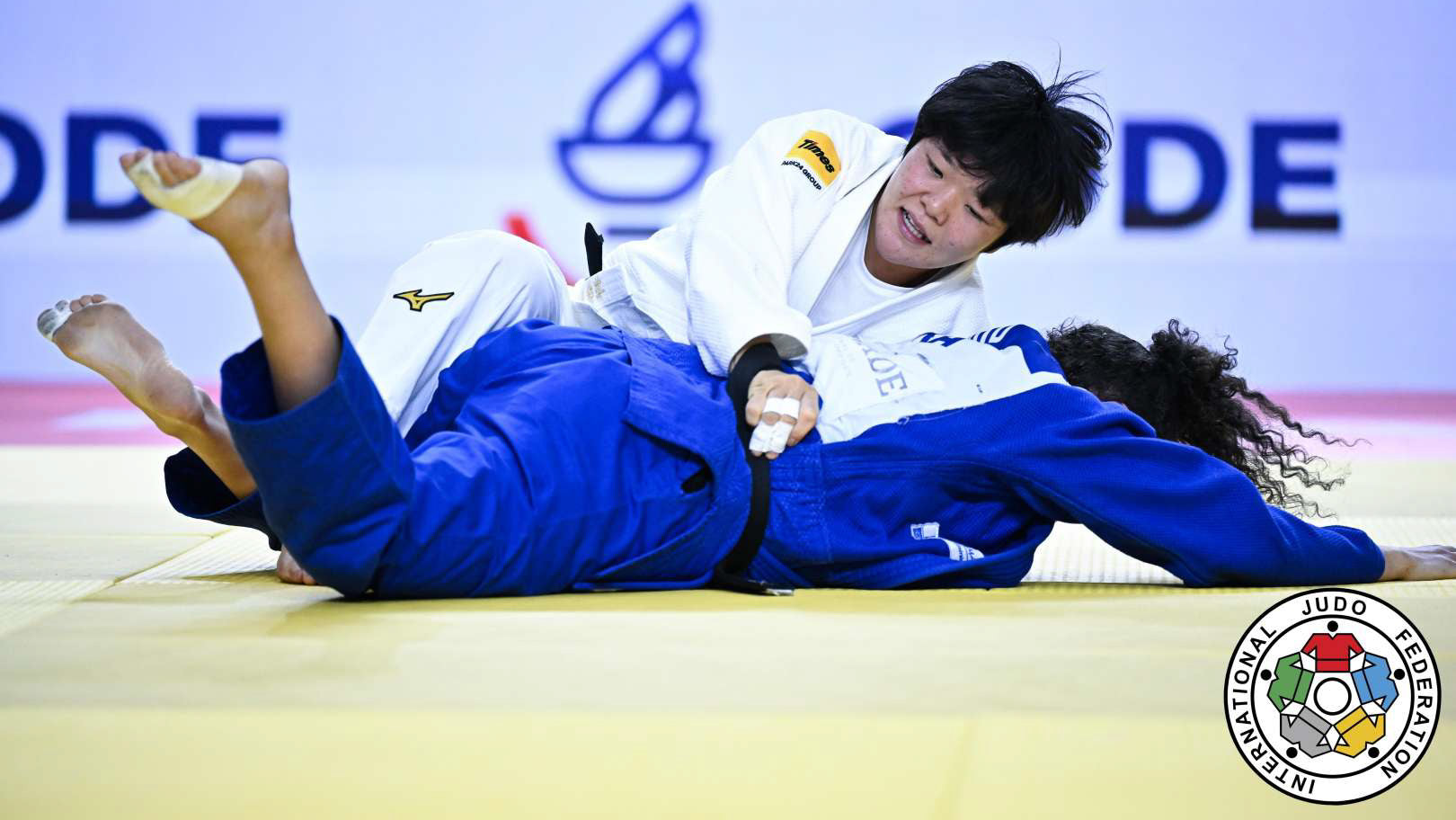Georgian athletes have undeniable physical and technical qualities and skills, they are also supervised by a federation that sees the long term.
Georgia finished 3rd in the nations ranking at the conclusion of the 2023 World Judo Championships in Doha, Qatar. No surprises there as Georgia has produced many champions for years.
In 2017, a group of young and promising Georgian judoka joined the “Challenge 2020” in hopes of making the 2020 Tokyo Olympics. Three of those judoka are Tato Grigalashvili, Lasha Bekauri, and Luka Maisuradze. If you’re a follower of judo all three of those names consistently stand out.
Tato Grigalashvili (-81kg) became an Olympian in 2020 (placed 5th), back-to-back world champion (2022, 2023) as well as a silver medal at the World Championships in 2021. Lasha Bekauri (-90kg) became the Olympic champion in 2020, earned a bronze medal at the World Championships in 2022, as well as the silver medal in 2023. Luka Maisuradze (-90kg) has placed at three World Championship events; bronze medals in 2019 as well as 2022 and the gold medal in 2023 where he defeated his teammate, Lasha Bekauri, in the final.

“Challenge 2020” is supervised by David Kevkhishvili, who is Vice President of the Georgian Judo Federation. He provided an explanation to the IJF on how the “Challenge 2020” program operated. He said, “In 2017 we understood that we could not only count on the talent of our judoka. Of course it is important to be talented but this is not enough, especially if you think in the long term. The competition at the international level is very intense. All countries want to perform and there are talented people everywhere.” Kevkhishvili continued, “We started to identify young judoka with a great potential during the cadet events, in and outside of the country. We also have a U15 club championships in Georgia that gave us some good indications. We felt that, even with those really good judoka, if we didn't put something special in place, we would miss something.”

Something special was indeed put into place. The Georgian Judo Federation decided to run two programs; for the national team and for promising young judoka. In his explanation to the IJF, Kevkhishvili says, “It was all about judo skills, but not only. We did everything for them to train in good conditions. This also included general knowledge about judo, physical and mental preparation. Step by step the Challenge 2020 became a big motivation for everyone. It created a positive concurrence between the old and younger generations. So basically we had two Georgian teams, the already experienced champion and the future ones. Today, we harvest the results of that strategy.” The results have spoken for themselves very clearly.

Kevkhishvili told the IJF, "Challenge 2020 was the first stage of the rocket. We are really happy to see that it worked even beyond our imagination. We have already initiated the next steps and we are talking about Challenge 2024 and even 2028. We already know the competitors who have the potential to become the next champions and we are working with them. The programme is sustainable and brings so much emotions and energy. It is self-powered."
President of the Georgian Judo Federation, Giorgi Atabegashvili, also provided insight on the success of “Challenge 2020.” In a statement made to the IJF he said “it can already be said that both the federation and the judo itself in Georgia are an exemplary model for Georgian sports; how reforms can be carried out and progress can be achieved in any sport. Georgian judo has always had results, however not on such a large scale. The current achievements are the merit of a well organized system which created healthy competition in the national team and took care of the education of the next generations. To be fair, it should be said that these reforms in judo were initiated by the current leadership of the federation, which took the development of judo to new heights and offered new innovative approaches.”

Challenge 2020 was an innovative approach of the Georgian Federation and the reform produced tremendous results. Atabegashvili added, “The federation selected talented young people, took them to competitions, enabled them to live in a training centre and kept them on a strict regime. Athletes had nothing else to think about except training.” The program also included an education system for their judoka which was also set up by the Georgian Judo Federation. The Federation included a contract with the athletes, establishing a code of conduct which defined in detail what the athletes were allowed to do or not to in order to continue building their discipline.
However, “Challenge 2020” was about more than just the athletes themselves. The Georgian Federation also provided and developed special programs and training sessions to improve the qualifications of their coaches as well! Atabegashvili concluded his statement with, “the great work done by the athletes, coaches, doctors, the federation and each person was really appreciated and we achieved a record result. This is one way, one vision, one team. This is the Georgian Judo Federation and we think that you will rarely see such a united, result-oriented team, not only in judo but in any sport."
Georgia had a plan and implemented it in the best way possible!



